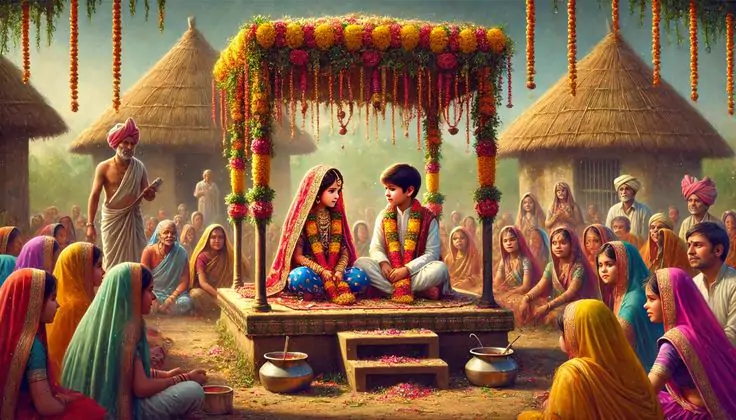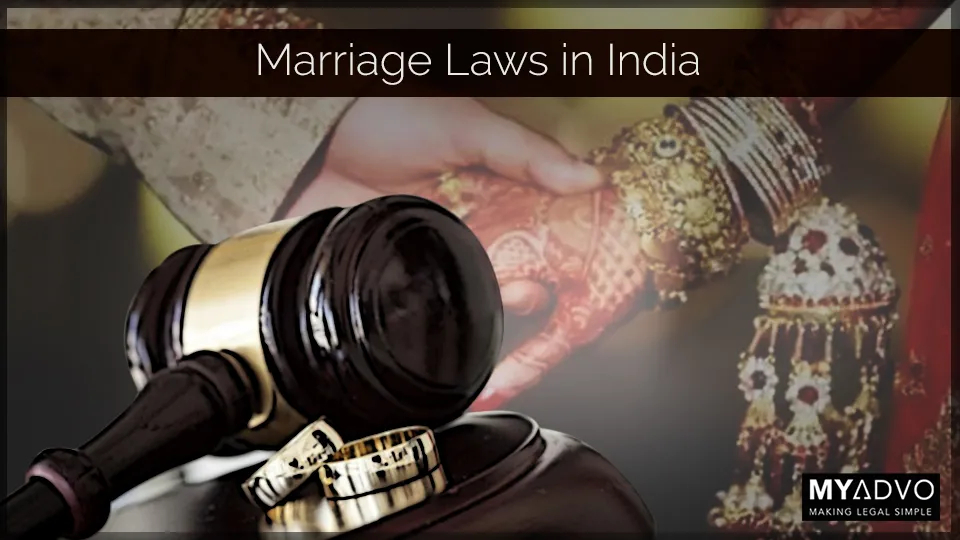Navigating marital laws in India is essential for understanding the evolving legal framework that governs relationships. From addressing underage marriages and pre-marital affairs to the implications of the extra marital affair law and the provisions of the Special Marriage Act, this article delves into the complexities of Indian marriage law.
Law students in India will find this exploration highly relevant, offering insights into pressing societal challenges and legal remedies that shape the personal and legal landscapes of modern relationships.
Underage Marriages: A Persistent Challenge

The marital laws in India currently set the legal age for marriage at 18 for women and 21 for men under the Prohibition of Child Marriage Act, 2006. The law prohibits underage marriages, with provisions for annulment and penalties for those facilitating such unions.
A new proposal, initiated by Himachal Pradesh, seeks to raise the legal marriage age for women to 21, aiming to align it with men and address health and socio-economic issues. While this step awaits presidential assent, critics question its enforceability, highlighting the need for broader reforms to complement marriage laws in India and achieve meaningful change.
Pre-marital Affairs: Rights and Legal Implications
Pre-marital relationships in India face social stigma, but consensual relationships between adults are not illegal under marital laws in India. The age of consent is 18 years, as per the Protection of Children from Sexual Offences Act, 2012, and the IPC, 1860. The Right to Privacy, upheld under Article 21 of the Constitution, protects such relationships. However, courts like the Allahabad High Court have noted cultural sensitivities under Indian marriage law, highlighting that pre-marital sex is not encouraged in traditional frameworks like the Hindu Marriage Act and Muslim laws.
Revenge porn cases, a growing concern, fall under the IT Act, 2000 and the IPC, 1860, offering remedies for victims. Parents disputing such relationships may seek legal help through family courts. Awareness of consent laws, data privacy, and protections against exploitation can empower individuals to navigate their rights effectively.
Extramarital Affairs: Legal and Emotional Turmoil

The 2018 Supreme Court judgment decriminalising adultery under Section 497 of the IPC redefined marital laws in India, focusing on gender equality and personal autonomy. While an extra marital affair law no longer imposes criminal penalties, adultery remains a valid ground for divorce under acts like the Hindu Marriage Act, 1955. It also impacts alimony, child custody, and property disputes.
The societal stigma persists, making mediation and counselling vital to address emotional and legal challenges. Seeking professional legal advice ensures a clear understanding of remedies, including divorce and mental cruelty claims, empowering individuals to protect their rights while navigating this complex issue.
Grooming Gangs: The Dark Side of Romance
Grooming gangs exploit vulnerable individuals by building trust and later trapping them in cycles of abuse, blackmail, and exploitation. In India, legal protections like the IPC, POCSO Act, and IT Act address such crimes, empowering victims to report offences.
Parents concerned about their children’s safety can intervene legally through police complaints or by filing petitions under marital laws in India if marriage or domestic abuse is involved. Victims must preserve evidence (messages, videos) and file FIRs promptly. Combating these crimes requires awareness campaigns, proactive law enforcement, and breaking societal taboos to protect others from similar exploitation.
Special Marriages: Intercaste and Interreligious Marriages
The Special Marriage Act, 1954, offers a secular legal framework for couples marrying across religions or castes, bypassing religious conversion requirements. It ensures equality in marital rights, property, and inheritance, governed by the Indian Succession Act, 1925, rather than religious laws, providing flexibility and fairness in asset distribution.
Despite the Act’s provisions, societal challenges and stigma persist, making it vital for couples to understand marital laws in India. Couples should consult legal experts to navigate inheritance exceptions like Section 21A, impacting Hindu women married under this Act.
To ensure smooth implementation, complete the 30-day notice process, submit identity and address proofs, and involve legal witnesses. A proactive approach, like drafting a will, safeguards future disputes effectively.
Legal Remedies for Parents, Couples, and Children

For Parents
Parents often face challenges under marital laws in India when protecting their children from forced marriages or grooming. They can file complaints under the Prohibition of Child Marriage Act, 2006, which voids underage marriages. For custodial remedies, the Guardian and Wards Act, 1890 empowers parents to secure custody if a minor is coerced into a marriage.
In cases involving live-in relationships, parents have limited legal grounds to intervene, but they can seek guidance under civil laws if coercion or abuse is suspected.
For Couples
Couples seeking protection orders for interfaith or intercaste marriages can approach the court under the Special Marriage Act, 1954. This law safeguards marriages outside religious norms and ensures non-discrimination. For legal separation or divorce, Indian marriage law provides grounds such as cruelty, adultery, and mutual consent under the Hindu Marriage Act, 1955 or relevant religious laws.
Domestic violence victims can seek remedies under the Protection of Women from Domestic Violence Act, 2005, which also applies to live-in partners if they face abuse or harassment.
For Children
Children’s rights, especially in custody disputes, are protected under the Hindu Minority and Guardianship Act, 1956. Courts prioritise the child’s welfare while resolving custody.
Under marital laws in India, children born out of wedlock or special marriages are entitled to equal inheritance rights and legal recognition under the Indian Succession Act, 1925 and the Special Marriage Act. Welfare provisions ensure that the child’s education, upbringing, and emotional needs remain paramount.
Legal awareness is key to effectively navigating these remedies and securing justice. Whether you’re a law student or a curious reader, staying informed about Indian marriage law, the Special Marriage Act, and the evolving dynamics of the extra marital affair law can empower you to approach these issues with clarity.
Share this article with peers and explore how knowledge of marriage laws in India can make a meaningful difference in personal and professional contexts.
Read Also – Is Sedition Law in Bhartiya Nyaya Samhita More Stringent?
How Blockchain Can Make Hiring Simple For Employees And Employers





